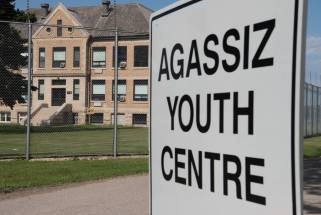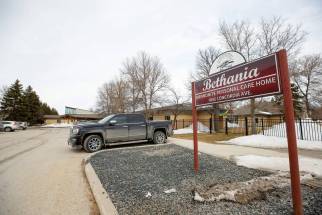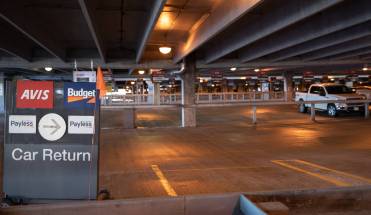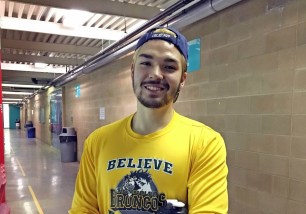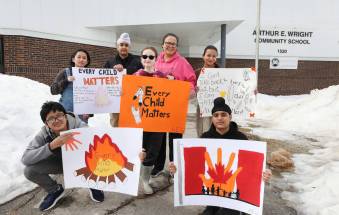Keeping the flames of reconciliation burning
Read this article for free:
or
Already have an account? Log in here »
To continue reading, please subscribe:
Monthly Digital Subscription
$0 for the first 4 weeks*
- Enjoy unlimited reading on winnipegfreepress.com
- Read the E-Edition, our digital replica newspaper
- Access News Break, our award-winning app
- Play interactive puzzles
*No charge for 4 weeks then price increases to the regular rate of $19.00 plus GST every four weeks. Offer available to new and qualified returning subscribers only. Cancel any time.
Monthly Digital Subscription
$4.75/week*
- Enjoy unlimited reading on winnipegfreepress.com
- Read the E-Edition, our digital replica newspaper
- Access News Break, our award-winning app
- Play interactive puzzles
*Billed as $19 plus GST every four weeks. Cancel any time.
To continue reading, please subscribe:
Add Free Press access to your Brandon Sun subscription for only an additional
$1 for the first 4 weeks*
*Your next subscription payment will increase by $1.00 and you will be charged $16.99 plus GST for four weeks. After four weeks, your payment will increase to $23.99 plus GST every four weeks.
Read unlimited articles for free today:
or
Already have an account? Log in here »
Hey there, time traveller!
This article was published 24/03/2022 (1357 days ago), so information in it may no longer be current.
Elementary students in the Seven Oaks School Division are learning what it means to be allies in an era of truth and reconciliation — one fire log at a time.
As the Migiziiwazison Sacred Fire Camp marks its nine-month anniversary on the east lawn of the Manitoba legislature, Grade 7 and 8 students are collecting donations to purchase wood so the flames can burn indefinitely as a tribute to the Indigenous children who never returned home from residential schools.
Arthur E. Wright Community School is always looking at ways to build student capacity for intercultural understanding, empathy and mutual respect, said principal Harpreet Panag.
Every morning before class, an administrator reads aloud a treaty acknowledgement during which she encourages students and staff to “be mindful of how we are contributing to truth and reconciliation today, and every day.”
“We don’t want to walk in front, or be behind. We want to walk alongside — and that’s not just (something) we talk about. We walk that talk here in this school,” she told the Free Press.
“We don’t want to walk in front, or be behind. We want to walk alongside– and that’s not just (something) we talk about. We walk that talk here in this school.” – Harpreet Panag, principal at Arthur E. Wright Community School
Nearly 100 students from the K-8 building recently had an opportunity to both talk and walk in the spirit of reconciliation.
On March 14, several school buses pulled up to the legislature so students could partake in a morning smudge, led by educational assistant Rachel Fitzner, and learn teachings about the fire from camp participants. They later walked as a group to The Forks with handmade signs bearing the words, “Every Child Matters.”
“Seeing how the firekeepers are always there, 24-7, it really showed how much people can make an impact on others,” said Miyah Elomina, a Grade 8 student.
Grade 7 student Jordyn McConnell said she was taught about how to use tobacco, an offering to people who have died, and cedar, which is supposed to guide spirits home, in a fire while praying in a teepee.

Jordyn said the students also learned the camp uses a cord of wood (roughly 700 pieces) per week, and is always in search of extra logs. The visit prompted students to become eager to teach younger peers about the camp “and why we, as allies, should help them keep the fire going,” she added, noting A. E. Wright’s current student-led fundraising initiative.
Since autumn, teachers have discussed planning a field trip to the downtown site to learn about allyship and emphasize that Indigenous children matter every single day — not just on Sept. 30, the national day of truth and reconciliation.
With COVID-19 restrictions lifting and the encampment making headlines because authorities dismantled it, the subject arose again this month.
No matter where the fire burns in the future, be it on the legislature grounds or elsewhere, Grade 7-8 teacher Daniel Militano said the school community wants to ensure a flame is lit. Militano said their goal is to raise $2,000 for three cords to help do exactly that.
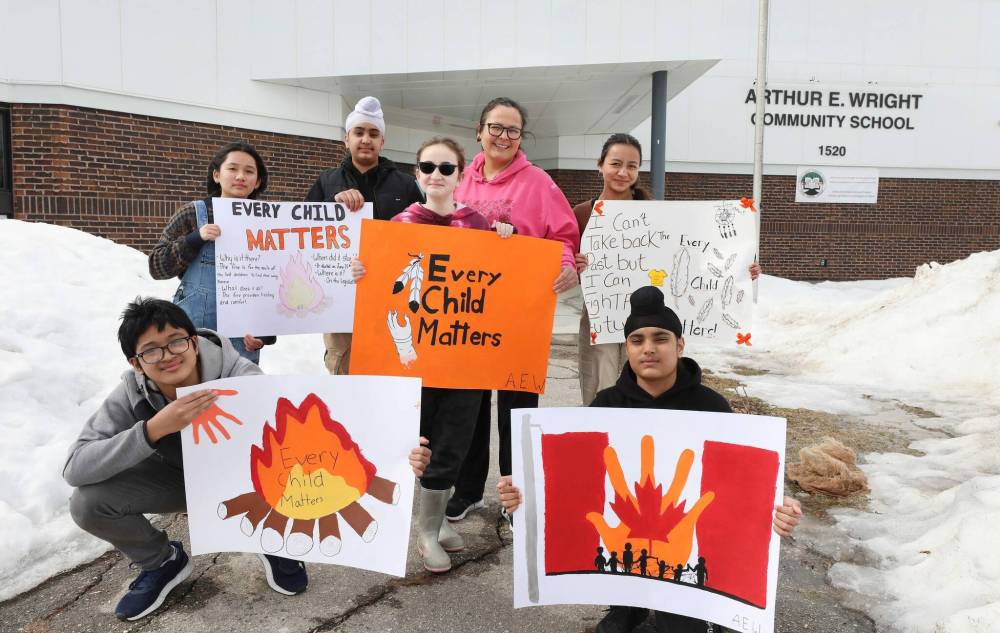
Indigenous community members first lit a fire in the summer to recognize the discovery of hundreds of unmarked graves. Organizers have said the camp’s purpose is to be a space for prayer and healing, and that they will stay put until all residential school grounds are searched for unmarked graves.
On March 9, the province partly tore down the camp. It said it took action because people were living in a public space. The minister in charge of government services later said legislative staff had determined the camp was empty.

“When we have someone pass away, we have a sacred fire for them so that they can return back to the spirit world. All those children (buried in unmarked graves) never got that,” said Zech Schick, as he explained why the camp is rebuilding and being a keeper is so important to him, during a volunteer shift in the teepee.
“When we have someone pass away, we have a sacred fire for them so that they can return back to the spirit world. All those children (buried in unmarked graves) never got that.” – Zech Schick
Schick, a member of Peguis First Nation who has been involved with the camp since around the time it began on June 25, said one key part of reconciliation is giving Indigenous people ownership over the land that was taken from their ancestors.
Allyship can also come in the form of donating time to be a firekeeper, providing wood, or simply listening, he said, adding the camp appreciates any visitors who come to learn about “the real history of what their governments have done to our people.”
maggie.macintosh@freepress.mb.ca
Twitter: @macintoshmaggie

Maggie Macintosh reports on education for the Winnipeg Free Press. Funding for the Free Press education reporter comes from the Government of Canada through the Local Journalism Initiative.
Our newsroom depends on a growing audience of readers to power our journalism. If you are not a paid reader, please consider becoming a subscriber.
Our newsroom depends on its audience of readers to power our journalism. Thank you for your support.

